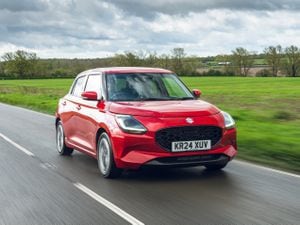Volvo EX30 produces the lowest carbon footprint of any electric Volvo to date
The firm’s latest all-electric SUV proves Volvo’s EV manufacturing is getting cleaner.

Volvo has revealed that its new EX30 all-electric SUV has the lowest carbon footprint of any electric model the company has made.
The carbon footprint is what identifies the key emissions in a vehicle’s entire life cycle – from the first panel put together to the day the vehicle is scrapped.
All-electric vehicles are seen to produce more greenhouse gases in their manufacturing process than internal-combustion engined vehicles.

However, Volvo has found that its new EX30 produces around 23 tonnes per 124,000 miles – which is approximately 60% less than the firm’s XC40 internal combustion engined SUV.
Jonas Otterheim, head of climate action at Volvo cars said: “By studying the EX30’s carbon footprint and identifying its primary materials and processes, we aim to provide valuable insights that can help guide decisions in our company towards becoming more sustainable, as well as among the wider industry.”
The EX30 uses the most recycled materials of any Volvo to date, with 17% of the vehicle’s plastics within the car – from the interior components to exterior bumper – being made from recycled materials.
Volvo plans to reduce its CO2 impact even further with the EX30 thanks to its battery supplier cutting its emissions by 20%. Its supplier will do this by swapping electricity usage during cell manufacturing with renewable energy sources, increasing the share of recycled content in their materials, and reducing their supply chain emissions.





